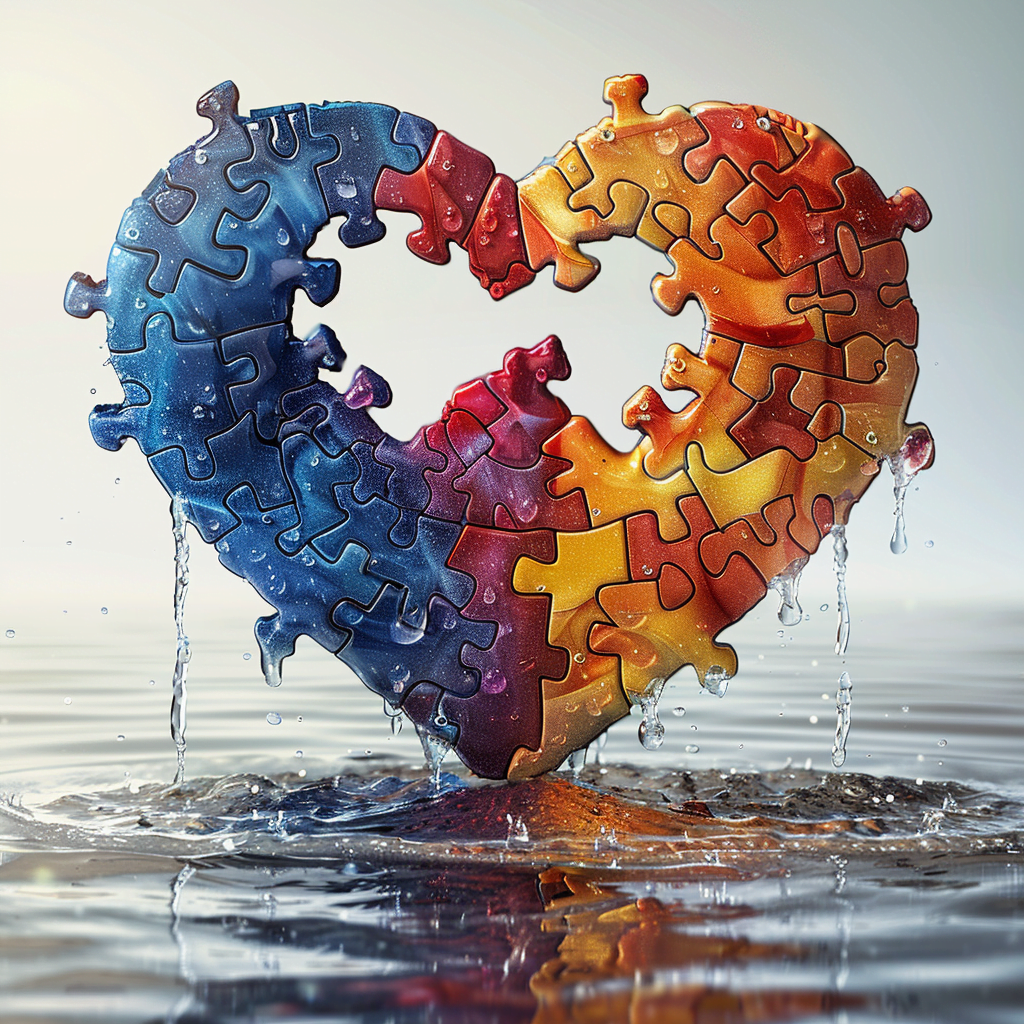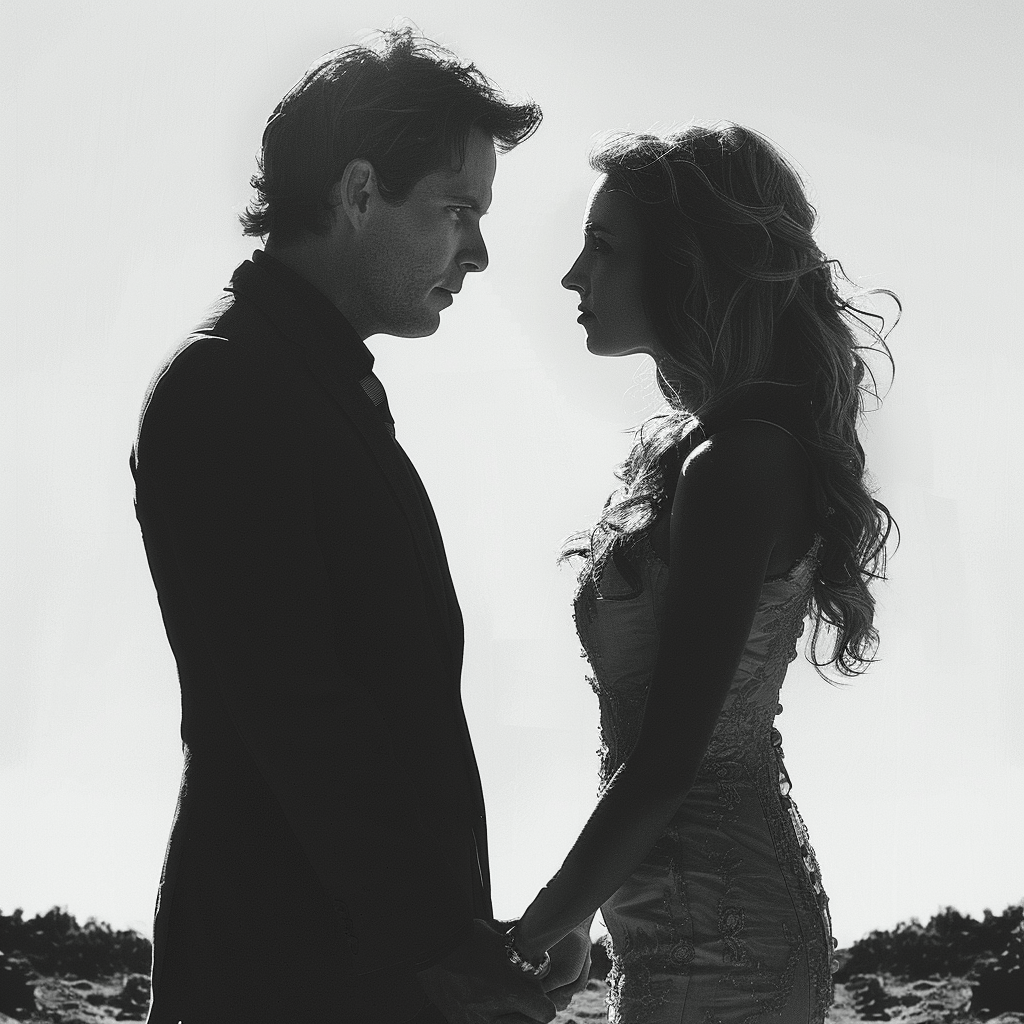Key Points
- Check If You’re Happy Together: Ask yourself if you’re getting what you need, if you feel important and joyful, and if being with your partner makes your life better. Look at how you both act and talk to each other to see if it’s what you really want.
- Look At Your Personal Growth: Consider whether being in the relationship is helping you grow as a person or holding you back.
- Think About The Future: Examine if you both want the same things in life, share core beliefs, and have the same picture of what the future should look like.
Contents
- 1 Key Points
- 2 Understanding Relationship Ambivalence
- 3 Love and Respect
- 4 Relationship Fulfillment
- 5 Relationship Health
- 6 Compatibility and Shared Values
- 7 From Then to Now
- 8 Understanding Disagreements in Relationships
- 9 Trust and Commitment
- 10 When to Stay Put
- 11 The Role of Hope
- 12 Fear and Doubt
- 13 Intuition and Gut Feelings
- 14 Practical Considerations
- 15 The Role of Counsel
- 16 Handling the Aftermath
- 17 Personal Growth
- 18 Frequently Asked Questions (FAQ)
Understanding Relationship Ambivalence
Deciding whether or not to stay in a relationship can send your head spinning. Figuring out whether you’re hitting a minor snag or facing a serious problem is crucial. That horrible feeling when you can’t decide if breaking up or staying put is the answer can be really confusing.
Love and Respect

Deciding whether to stay in your relationship or end it, consider if there’s still love and respect between you two. Ask yourself these questions:
- Does your significant other’s affection still make you feel good?
- Is respect a strong part of your relationship?
If you’re saying yes, then your situation might not be so bad. But if these questions don’t resonate with you, it could mean there are serious problems.
Relationship Fulfillment

Think about if your romantic relationship makes you happy and meets your personal needs. Ask yourself:
- Do you feel real happiness when you’re with your partner?
- Does your partner meet your emotional needs?
If you answer “yes,” it may mean your relationship is rewarding. But if you’re not sure, or if the answer’s “no,” it could mean that something important is missing.
Relationship Health

To check if your relationship is doing well, watch for signs of negative behavior. Think about how you and your partner handle issues and share ideas. Important things to consider are:
- Whether there are damaging patterns in the relationship
- Your ability to talk through problems and find solutions together
Good communication is the backbone of a strong relationship. Without it, you’re likely to run into continuous disagreements.

It’s important to check if you and your partner are a good match. You should consider:
- Whether your basic beliefs and goals in life match up
- How much you both enjoy doing things together
Having these things in common can really strengthen your relationship and make it last longer. But if you’re not on the same page, you might run into problems later on.
Remember: looking at your relationship isn’t just about going through a list. It’s more about understanding the mix of feelings, needs, and experiences that you share. That’s what love is all about.
From Then to Now

When you think back on how your relationship started, it can tell you a lot about where it stands today. Looking at the way joy and satisfaction have shifted from the beginning can show trends—these might signal a downward turn or long-standing problems. Did things kick off with promise and then slow down, or has it always been full of challenges that you’ve tackled together? Reviewing your shared past can help you see if you’re holding onto old good times and avoiding current issues.
Changing Together or Falling Apart?
Good relationships usually change and grow just like the people in them. Thinking about the ways you and your boyfriend have transformed over time can shed some light. Ask yourself if you’ve evolved in sync, cheering on each other’s dreams and transformations, or if your paths have started to split. Taking a hard look at how change has played out may show if your bond supports both of you blooming, or if it’s holding back personal progress.
Understanding Disagreements in Relationships

It’s normal for couples to argue from time to time, but the nature and frequency of these arguments can be a sign of bigger issues. It’s important to think about how serious these arguments are and how often they happen. Do they concern small issues that are quickly sorted out, or are they about important values and beliefs? Realizing what your fights are about can indicate whether they’re small bumps in the road or signs of deeper troubles.
How You Resolve Conflicts and What Happens Next
The way couples handle their disagreements is crucial. Does finding a solution mean you both gain a better understanding and move forward improved, or do solutions just paper over the cracks, only for the same problems to pop up again? Looking at what happens after a fight can show you if conflict is just a brief downpour or more like constant bad weather in your relationship. This understanding can be key to figuring out how healthy your relationship really is.
Trust and Commitment

Trust is the foundation of any love relationship. Consider whether you really trust your partner – does his presence make you feel secure or are you always worried? Has your trust grown stronger with time, or have certain events weakened it? The amount of trust you have indicates how stable your relationship is and whether it’s likely to last.
Commitment to the Relationship’s Future
In the end, knowing how committed you both are to the future of the relationship is key. Check how devoted your boyfriend is – does he stand by you through thick and thin, or is he hesitant to make joint plans for the future? Weighing up how much you both want to commit to what’s coming can help decide if staying together is in line with both of your long-term goals, or if it might be best to go your separate ways.
When to Stay Put

Deciding to stick with a relationship is tough. You have to think about what you can’t handle and what’s truly important. Everyone has those big no-nos that mean a relationship isn’t working. From not being able to trust each other to disrespect, knowing what you won’t put up with is key.
You also gotta look ahead. Can things get better? It’s important to be honest about whether problems can be fixed and if you and your partner are both ready to make an effort.
Spotting Big Red Flags and Must-haves
You start by figuring out which parts of your relationship are deal-breakers. These are the lines in the sand that, once crossed, spell trouble for staying together. You must acknowledge what you absolutely need and see if your relationship measures up.
Looking at the Chances for Getting Better
Then, you need to consider if there’s a chance for things to look up. Ask yourself if the issues have solutions and if you’re both on board to work through them. Keep in mind though, you have to be honest about whether your past together shows signs of potential progress.
The Role of Hope

Hope is really important when deciding if you should stay in a relationship. It’s key to know the difference between useful hope that’s based on something real, and just daydreaming which can trap you in a bad situation. Figuring out how hope changes the way you make choices can help you see if it’s actually helping you wait for things to get better, or if it’s just making you ignore the harsh truth.
Realistic Hope vs. Wishful Thinking
You’ve got to be truthful with yourself about what kind of hope you’ve got. Is it genuine hope, coming from real signs of change and a set plan, or is it just pretending that things will get better without any real proof? Real hope comes from noticing true progress, but wishful thinking just overlooks all the letdowns and keeps looking for a miracle without any real action being taken.
The Impact of Hope on the Decision Process
How much hope sways your thoughts can seriously shake up your decision-making skills. Hope can give you the endurance and positive outlook to get through tough times, but if it’s the wrong kind of hope, it could just drag out your pain and stop you from taking necessary steps.
Fear and Doubt

When you think about ending a relationship, it’s normal to feel scared and unsure. The idea of being on your own might seem scary, and this fear can make it hard to decide clearly. At the same time, questioning if you’re making the right decision can stop you in your tracks, preventing you from choosing whether to stay or go.
Fear of Being Alone
Worrying about not having someone close to you can spark fear. Sometimes this makes staying in a so-so relationship look better than being by yourself. It’s important to figure out if this fear is driving your decision more than your real thoughts about how good the relationship is.
Doubts About the Decision’s Rightness
Wondering if breaking up is the right move is common and can pop up a lot as you think it over. It’s natural to second-guess yourself when the decision is so personal. But these doubts can either push you to think harder and find a clear answer, or they can freeze you and keep you stuck, unable to decide.
Intuition and Gut Feelings

Listening to your inner voice is critical when deciding whether to stay in a relationship or say goodbye. You need to be aware of the quiet yet powerful signals from your intuition. Paying attention to these feelings can guide you through the complicated world of love.
Listening to Inner Voice
If something doesn’t feel right, it probably isn’t. Spend some time thinking about the quiet nudges from your heart and mind. These hints can reveal important facts about your relationship that you might be missing or not fully appreciating. Taking these gut instincts seriously can help clear up any confusion.
Trusting One’s Own Judgment
It’s easy to ignore your own thoughts when you’re in love, but it’s crucial to trust your judgment. You’ve gotten this far in life by making decisions based on what you think and believe—have confidence that you can figure out what is right for you in the future as well.
Practical Considerations

Dealing with a break-up involves complex practical issues in addition to emotional ones. It’s smart to consider how things like day-to-day responsibilities will change if you split up.
Financial and Lifestyle Implications
Ending a relationship often leads to big changes in money matters and your routine life. Think about what might happen, for example, needing a new place to live or tweaking your budget. Being ready for these shifts can help soften the blow if you go your separate ways.
Social and Family Impact
The end of your partnership won’t just affect you and your partner – it’ll also send shockwaves through your social network and relatives. Keep in mind how this might impact not only yourself but also those around you. Recognize that your choice has effects that go beyond the two of ye.
The Role of Counsel

When you’re hurt or unsure, getting advice from others can be very helpful. Asking people you trust gives you new ideas and support when you’re at a crossroads.
Seeking Professional Advice
Chatting with a counselor or therapist gives you a safe space to talk about your emotions. They don’t take sides and can give you strategies and advice to help you think clearly about what to do next.
Talking to Trusted Friends and Family
You’re close friends and relatives often offer a shoulder to cry on and share their own life lessons. Open talks with them might show you new viewpoints or answers that didn’t occur to you before.
Handling the Aftermath

Getting over a breakup is tough and filled with emotions. Yet, with time, healing happens. We often become stronger as we deal with feelings of sadness, anger, and finally, coming to terms with what happened. Turning to friends for help, taking care of yourself, or diving into creative activities can help you bounce back. It’s common for your emotions to go up and down while you’re figuring out who you are on your own again.
Going On Despite Sticking Around
If you decide to stay in a relationship, be ready for its own hurdles and emotional tasks. To make it work, you’ll need honest talks and to double down on fixing what’s broken. Both partners must be on board and take action—staying isn’t just hanging in there; it’s actively tackling problems together. Getting help from a therapist might give you both the strategies needed to keep moving forward side by side.
Personal Growth

We learn important things from every relationship about who we are, our limits, and what we expect. When we think over the good and bad parts, we better understand ourselves and can use this knowledge to improve our future relationships. This could include spotting trouble early or getting a clearer picture of what we really need, all of which can lead to stronger bonds later on.
Growth Opportunities After You Decide
No matter how things turn out when you’re making a big choice about a relationship, there’s always a chance to grow. Once that decision is in the bag, you might find new strengths or get into hobbies you didn’t pay attention to before. The time after making a decision could be for making new plans, feeling better about yourself, and working on becoming a better you. These moments can change you, opening doors to a happier life.
Frequently Asked Questions (FAQ)
Can an ongoing fantasy about life without my bf indicate it's time to split?
Julie Wadley, a renowned relationship expert, posits that if you’re constantly imagining a different life sans your boyfriend, it can be an unconscious signal from your brain that you crave significant change. It’s vital to discern whether these fantasies represent fleeting escapism or a deeper desire for a life where your current partner isn’t present.
Does my emotional well-being suffer due to my partner's dishonesty?
Barton Goldsmith, a marriage therapist, suggests that when dishonesty from a partner is impacting your mental health and well-being, it’s a substantial reason to contemplate termination. Persistent dishonesty erodes trust, which is the foundation of any healthy union. If there’s no progress toward honesty, the relationship may not offer the fulfillment it should.
Is feeling like just roommates with my husband a valid cause to break up?
Relationship coach Lindsay Chrisler highlights that while it’s common for couples to fall into a routine that resembles cohabitation without intimacy, it can also hint at deeper issues. If efforts to rekindle the spark fail repeatedly and both you and your mate are stalled in lifeless patterns, it might be indicative of irreparable rifts.
Should persistent arguments with my guy friend lead to ending our romantic involvement?
According to Kelly Gonsalves, Contributing Sex & Relationships Editor, while disagreements are typical, chronic conflict can signify incompatibility. It is crucial to evaluate whether these arguments stem from surmountable challenges or if they’re indicators that you and your guy friend are better off as just friends sans romance.
Does a total lack of sex with my bf point toward a breakup?
Weena Cullins, a licensed marriage therapist, asserts that intimacy is often linked to the overall health of the relationship. If physical connections have ceased entirely and attempts at resolution or identifying underlying causes fail, it could be an indication that the relationship isn’t meeting fundamental needs for either party, potentially warranting a conclusion.
How do I know if trust issues with my partner suggest we should part ways?
Elizabeth Overstreet, a relationship strategist, advises that trust is core to any partnership. The persistence of trust issues without any significant improvement can hinder emotional security and connection. If after considerable effort and maybe even third-party intervention trust remains unresolved, it might be time to reevaluate the relationship’s viability.
Could a constant sense of regret about being with my man be a sign it's time to move on?
Author and journalist Suzanne Degges White posits that experiencing continuous regret in a relationship is often an internal indicator of discordance with one’s needs and values. This emotional red flag is worth attentive exploration; if this sentiment persists, it might signal that the relationship is lacking in aspects critical for your personal fulfillment.
If my significant other fails to meet my requirements repeatedly, does that justify a split?
Relationship expert Barton Goldsmith emphasizes that while no one is perfect, repeatedly unmet needs can lead to a build-up of frustration and disappointment. Open discussion about expectations and requirements is essential. If over time there’s no effort from your significant other to accommodate what you deem crucial, it could very well be grounds for separation.
Should ingrained resentment towards my mate indicate the end of our relations?
Coach and CEO Weena Cullins states that chronic resentment often poisons relationships through its negative impact on communication and affection. When resentment becomes entrenched, it significantly impairs mutual respect and understanding. If there seems to be no way past these feelings despite best efforts, it may be an indication to consider departing the relationship.
Is feeling stuck in rut-like patterns with my partner sufficient reason for a breakup?
Kelly Gonsalves, sex and relationships expert, recognizes that while all couples face dull patches, staying indefinitely in a state of stagnation is another matter. If various strategies and coaching don’t bring about any positive changes or breakthroughs and both individuals are disenchanted with the status quo, it might indeed be a sign to conclude that segment of your journey together and venture forth independently.

I’m Kary Walters, a wedding planner and writer with a passion for helping couples stay together and achieve their relationship goals. With over a decade of experience, I specialize in self-improvement and have worked with individuals & couples facing challenges.